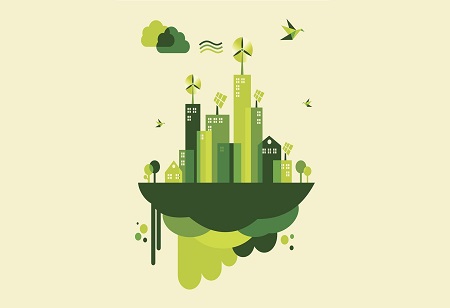At the 26th Conference of the Parties (COP26), India's Prime Minister Narendra Modi pledged to reduce emissions to net zero by 2070, and boost the amount of renewables in the energy mix to 50% by 2030. The conference also underlined the significance of mobilizing business assistance to pursue an ecologically responsible agenda, as well as the need for sustainable growth.
António Guterres, Secretary-General of the United Nations also sounded a clarion call to businesses to join the fight against the global climate crisis. “Companies everywhere are recognising that
sustainable business is good business; that decarbonising operations and supply chain is not just the right thing, but the smart thing to do. Consumers expect it. Employees demand it. And our future depends on it”, Guterres had said.
Today, business is becoming more than just an engine of economic development restricted to the creation of wealth and employment. Rather, its inclusion in the SDGs as a whole indicates a new development paradigm that gives business a more central and diversified role in all facets of sustainability.
The Indian businesses are already taking significant steps to attain a comprehensive sustainable development in their business administration. A survey conducted by Deloitte in 21 countries, Indian businesses ranked fifth in terms of their concern for climate change. The report also noted that Indian companies are more likely to be implementing tougher climate actions compared with their global counterparts.
Another study performed by Autodesk in collaboration with Frost & Sullivan shared that, for nearly 64% of the Indian businesses, sustainability is part of their leadership's formal strategic vision, purpose, and/or company goals. The data also demonstrate that sustainability efforts are gaining traction in the area, with regulatory and market forces (92 percent), investor relations (87 percent), and competitive advantage (80 percent ).
In this article, let’s look at how the big Indian corporation's approach to establish sustainability into their organizations by successfully neutralizing the difficulties that are unique to their segment.
Real Estate to drive improvement in ESG
The Indian Real Estate sector is one of the fastest growing sectors in the country. Moreover, over the last few decades the sector has witnessed an exponential growth and is expected to continue the same in the near future. However, the sector remains a significant contributor to environmental pollution and greenhouse gas emissions (GHG). And when it comes to compliance and reporting, many companies are still laggards. Today, the real estate sector uses more energy than any other sector and is a growing contributor to CO2 emissions.
“Integrating appropriate mechanisms such as implementation logs should be the mandate. Sustained investor focus can contribute to driving improvement in ESG performance across the industry.
